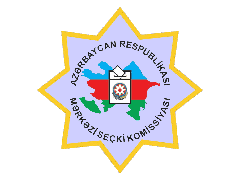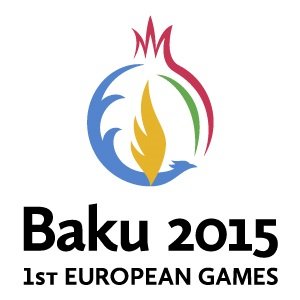NEWS
-
Charges d'affaires of Azerbaijan to UNESCO Ayaz Gojayev has met with Assistant Director-General for Culture of UNESCO Ernesto Ottone.
During the meeting, Gojayev was informed about the military aggression carried out by Armenia against Azerbaijan.
He stressed that the Armenian side is targeting the civilian population and infrastructure. Women, children and innocent people were killed and wounded as a result of the bombing of settlements near and far from Azerbaijan's by the Armenian armed forces. As a result of Armenian aggression, civilian infrastructure was severely damaged as well.
Gojayev noted that as a result of the bombing of Azerbaijan's occupied territories by the Armenian armed forces, as well as far from the Nagorno-Karabakh region, Azerbaijan's material and cultural heritage monuments were seriously damaged.
The tomb of Sheikh Babi of the 13th century, the 9th century Imamzadeh Mosque, the historic building in Ganja, the 19th century Alexander Nevsky Orthodox Church were destroyed in the Fuzuli region.
Charges d'affaires also noted that the targeting and destruction of Azerbaijan's historical and cultural heritage by Armenia violates international law, as well as the 1954 Hague Convention for the Protection of Cultural Property in the Event of Armed Conflict.
The Assistant Director-General for Culture of UNESCO was informed of Azerbaijan's concern over the destruction and misappropriation of the cultural heritage monuments by Armenia.
Ayaz Gojayev stressed that Azerbaijani Juma Mosque in Agdam turned into a barn for pigs, which was an insult to the entire Muslim world.
The meeting called on Armenia to deceive the public by spreading false information in accordance with its old nature, and called on the organization to be careful and not to believe such false information.
Ernesto Ottone, in turn, emphasized that UNESCO closely monitors the events and is ready to assist in the protection of cultural heritage if necessary within its mandate.
-
26.10.2020
A video clip of Azerbaijani television (AzTV) has won ADAMI Media Prize 2020. The video was named best in "COVID-19 nomination".
In 2020, broadcasters, filmmakers and journalists from the EU's Eastern Partnership countries have submitted over 300 applications for the ADAMI Media Prize. On September 21-26, projects were evaluated by an international jury in Ljubljana, Slovenia.
The jury was organized by the Slovenian Public Broadcaster (RTV Slovenija). Additional, final jury sessions with the participation of film and media experts from the Eastern Partnership countries were held virtually on October 8-9 amid coronavirus pandemic.
Founded in 2015, the ADAMI Media Prize encourages filmmakers, journalists and audio-visual media professionals in the EU Eastern Partnership countries to promote topics of migration, tolerance and cultural diversity.
The prize is open to broadcasters and audio-visual media producers in the six participating countries, rewarding outstanding TV, film and online programmes that deal with diversity-related issues. Alongside the prize, ADAMI organizes networking events and fosters exchange among media professionals in Eastern Europe and the EU.
-
26.10.2020
For many decades, Muslim Magomayev has been and remains the idol of music lovers around the world.
Memory of the legendary singer and composer was honored in Russia on October 25.
Every year, public and art figures as well as the musician's friends and family members meet not far from the house where Muslim Magomayev lived.
Following the tradition, Russian mezzo-soprano Tamara Sinyavskaya, Araz Agalarov, Emin Agalarov and many others gathered in front of the monument to the legendary singer.
With his incredible baritone, Muslim Magomayev greatly enriched Azerbaijani musical culture. His life was full of bright events which still excite music lovers around the world.
The legendary singer inherited his passion for music from his family. His grandfather also named Muslim Magomayev (1885–1937), was considered one of the founders of modern Azerbaijani classical music.
His music career started at a very young age. He was only 19 when he first performed at an international youth music festival in Helsinki. His brilliant performance was highly appreciated by a Soviet politician Yekaterina Furtseva and the Minister of Culture of the Soviet Union, who offered him to be a soloist at the Bolshoi Theater. However, Magomayev declined this offer.
A year later, Magomayev performed at the Days of Azerbaijani Culture in Moscow. He sang an aria from Gounod’s Faust, and the song "Do the Russians Want War?" at a gala concert at the Kremlin Palace of Congresses.
A year later, he gave his first solo concert in the Moscow Tchaikovsky Concert Hall to a full house and became a soloist of the Azerbaijan State Academic Opera and Ballet Theater.
In 1964 and 1965, Muslim was a visiting artist at La Scala in Milan, but turned down the invitation to sing in the Moscow Bolshoi Theater upon his return. Instead, the singer turned to popular music, becoming a pop idol for several generations of music lovers in the Soviet Union.
Muslim Magomayev became a cult figure all across the Soviet Union. He performed three concerts a day filling huge arenas.
In 1969, he received the MIDEM Gold Disc Award in Cannes for album sales of over 4.5 million units. At the age of 31, Muslim was awarded the Soviet Union's highest artistic title: People's Artist of the USSR.
Magomayev moved to Moscow in the early 1970s. He worked as an art director of the Azerbaijan State Bandstand-Symphonic Orchestra.
The singer successfully toured many countries, including France, Bulgaria, Finland, Canada, etc.
Magomayev was also known as a composer, writing several film soundtracks and songs. He also acted in films and hosted television and radio broadcasts.
-
26.10.2020
Famous designer Gulnara Khalilova has presented a fashion collection of chiffon scarves in honor of National Army.
The fashion collection features colors of Azerbaijani flag to celebrate the regaining full control over Azerbaijani-Iranian state border.
"For about 30 years, our lands were under Armenians occupation. There are about a million refugees in the country, thousands of architectural monuments have been destroyed. Now our united people and a valiant army led by the Supreme Commander-in-Chief, President of Azerbaijan Ilham Aliyev are liberating our country from the Armenian fascists," said Khalilova.
The fashion designer also noted that National Army liberated Jabrayil, where her parents come from.
A veteran of the Karabakh war, two-time Paralympic champion, two-time world champion, seven-time European champion, Vice-President of the National Paralympic Committee Ilham Zakiev, People's Artist Tunzala Aghayeva, Honored Artists Elchin Gashimov, Elnur Akhmedov and Elnur Kerimov, TV presenters Sabina Oz, Kenul Mansimova, Emil Shahzade, performer Kamalya Akhmedova and others.
Gulnara Khalilova, the head of the Center of National Costumes, is a frequent guest of international fashion weeks. She is the two-times winner at Eurasian International Fashion Festival "Silk Road" held in China.
Her fashion collections have been successfully presented in Turkey, Russia, China, Austria, Romania, Great Britain, Kazakhstan, Kyrgyzstan, Uzbekistan and other countries.
She also designed costume for Azerbaijan's 2013 Eurovision representative Farid Mammadov and created hand panel with the official mascots of the EuroGames.
During the opening of Rio 2016 Paralympic Games in Rio, Champion of the European Games Ilham Zakiyev was in national dress, created by the designer which was a novelty in the history of the Olympic movement.
Khalilova is the author of a number of books dedicated to the traditions of clothing, including the history of Azerbaijan national clothing, the textbooks and catalogs for higher education institutions.
In 2014-2015 she worked as a teacher at the State Academy of Fine Arts. Since 2017, she is teaching at Khazar University. The designer also heads the Women's Entrepreneurship Development Association.
-
26.10.2020
World famous opera singer, People's Artist of Azerbaijan Yusif Eyvazov has successfully performed at the Russia's Bolshoi Theater.
Eyvazov took part in a gala concert "Bolshoi and Placido Domingo: Life in Opera". The opera singer shared the same stage with one of the finest and most influential singing actors in the history of opera, director General of the Los Angeles Opera Placido Domingo.
The opera singers thrilled the audience with "Invano Alvaro ti celasti al mondo" (Alvaro, Don Carlo, Act IV) from Giuseppe Verdi's opera "The Power of Fate".
The concert was also attended by world stars Russian Austrian operatic soprano Anna Netrebko, Ildar Abdrazakov, Piotr Beczala, Michael Volle, Kristina Nilsson (soprano), Pretty Yende (soprano) and Xabier Anduaga (tenor).
The symphony orchestra was conducted by the chief conductor - the musical director of the Bolshoi Theater Tugan Sokhiev. The concert featured arias and ensembles from the classical opera repertoire. The event aroused great interest among opera lovers.
Armenian provocations on social networks against Yusif Eyvazov completely failed as well. A dastardly campaign was launched by a certain Marina Iskandaryan, an employee of the Bolshoi Theater, who called on her compatriots to prevent Yusif Eyvazov's performance with Placido Domingo on October 21.
Despite all attemps to sabotage the performance, People's Artists of Azerbaijan Yusif Eyvazov and Elchin successfully performed on the theater stage. Their performance in Puccini's opera "Manon Lescaut" conducted by Placido Domingo left no one indifferent.
Known for his beautiful voice, Yusif Eyvazov is a regular guest at the world’s leading opera houses. His name is included in the book "The Best Tenors of the World".
The unique sound of his voice and his vibrant stage presence allow him to combine an active opera career with numerous concert performances.
The opera singer has appeared on numerous recordings for Deutsche Grammophon including a complete recording of Puccini’s "Manon Lescaut" live from the Salzburg Festival and with his spouse, soprano Anna Netrebko’s on the cross-over album "Romanza". In 2017, Yusif Eyvazov was awarded the title of People’s Artist of Azerbaijan.
-
 The historical territory of Azerbaijan - the region of Nagorno Karabakh, including its immediate areas, which has been under the seizure of Armenian armed forces for almost 30 years, is now being progressively freed by the victorious army of the Republic of Azerbaijan. Thanks to the courage demonstrated by the service personnel of our Armed Forces, the regional centres of Jabrail, Fizuli and Zangilan, as well as a number of the populated areas of these regions, and that of the Khojavend and Tartar regions have been freed from the occupation. Historical and cultural monuments located in our freed territories have also been saved from the enemy. However, we regret to note that during the years of the occupation, the aggressive policy of Armenia has either destroyed or misappropriated the immovable historical and cultural monuments belonging to the Azerbaijani people, while vandalising these historical sites by use that contradicts their historical and cultural purpose. The most common examples of immovable cultural heritage damaged by the Armenian armed forces are the Islamic monuments such as mosques, tombs and other places of worship. Armenians have demonstrated their hatred of Azerbaijanis by keeping animals inside mosques. Such barbaric treatment of the cultural heritage in the occupied territories, including unique monuments of special importance, is a threat to world heritage. As expected, many monuments in the freed areas are in a deplorable condition. The state-registered immovable historical and cultural monument – the mosque in Zangilan was used to keep pigs; this is another clear example of Armenian vandalism, and this fact is strongly condemned not only by Azerbaijan, but should also be criticised by international organisations and the progressive world community as a barbaric attitude to the world’s cultural heritage. This reflects the attitude of the Republic of Armenia to other religions and shows its true face. Keeping animals in the mosque, which is a place of worship for Muslims, along with the negative attitude of the Republic of Armenia to human values, is disrespectful to the religious values of our people and the entire Muslim world, and it should have a legal evaluation at the international level. We call on the states and peoples of the civilised world to condemn such heinous acts of the Republic of Armenia against human values. We also refer to the 1954 Hague Convention for the Protection of Cultural Property in the Event of Armed Conflict, according to which the occupying power must not allow the destruction, looting and misappropriation of and must refrain from hostile actions against cultural property.
The historical territory of Azerbaijan - the region of Nagorno Karabakh, including its immediate areas, which has been under the seizure of Armenian armed forces for almost 30 years, is now being progressively freed by the victorious army of the Republic of Azerbaijan. Thanks to the courage demonstrated by the service personnel of our Armed Forces, the regional centres of Jabrail, Fizuli and Zangilan, as well as a number of the populated areas of these regions, and that of the Khojavend and Tartar regions have been freed from the occupation. Historical and cultural monuments located in our freed territories have also been saved from the enemy. However, we regret to note that during the years of the occupation, the aggressive policy of Armenia has either destroyed or misappropriated the immovable historical and cultural monuments belonging to the Azerbaijani people, while vandalising these historical sites by use that contradicts their historical and cultural purpose. The most common examples of immovable cultural heritage damaged by the Armenian armed forces are the Islamic monuments such as mosques, tombs and other places of worship. Armenians have demonstrated their hatred of Azerbaijanis by keeping animals inside mosques. Such barbaric treatment of the cultural heritage in the occupied territories, including unique monuments of special importance, is a threat to world heritage. As expected, many monuments in the freed areas are in a deplorable condition. The state-registered immovable historical and cultural monument – the mosque in Zangilan was used to keep pigs; this is another clear example of Armenian vandalism, and this fact is strongly condemned not only by Azerbaijan, but should also be criticised by international organisations and the progressive world community as a barbaric attitude to the world’s cultural heritage. This reflects the attitude of the Republic of Armenia to other religions and shows its true face. Keeping animals in the mosque, which is a place of worship for Muslims, along with the negative attitude of the Republic of Armenia to human values, is disrespectful to the religious values of our people and the entire Muslim world, and it should have a legal evaluation at the international level. We call on the states and peoples of the civilised world to condemn such heinous acts of the Republic of Armenia against human values. We also refer to the 1954 Hague Convention for the Protection of Cultural Property in the Event of Armed Conflict, according to which the occupying power must not allow the destruction, looting and misappropriation of and must refrain from hostile actions against cultural property. -
 23.10.2020Memer Village Mosque belonging to Gubadli region was built in XVIII century. After the occupation of Gubadli region by the Armenian armed forces in 1993, the mosque was completely destroyed.
23.10.2020Memer Village Mosque belonging to Gubadli region was built in XVIII century. After the occupation of Gubadli region by the Armenian armed forces in 1993, the mosque was completely destroyed. -
Famous national poetess Nigar Hasanzade, who currently lives in the UK has filmed a video appeal on Armenian aggression against Azerbaijan.
In the video, the poetess stressed that Azerbaijan is fighting for its own territories.
Nigar Hasanzade is a member of the Azerbaijan Writers' Union of Azerbaijan, PEN International Association of Writers and laureate of the Humay National Academy of Azerbaijan Prize.
The author of such collections as "Wings Over the Horizon", "Under the Clouds of Others", "Silver", "Wrists" and others.
Since 2015, she is the head of "Soz" literary project. Supported by the Cultural Ministry and the State Economic University (UNEC), the project is important from the point of view of promotion of the Azerbaijani culture. Soz project is headed by famous poetess Nigar Hasanzade.
Azerbaijan and Armenia are locked in a conflict over Azerbaijan’s Nagorno-Karabakh breakaway region, which along with seven adjacent regions was occupied by Armenian forces in a war in the early 1990s.
More than 20,000 Azerbaijanis were killed and around one million were displaced as a result of the large-scale hostilities.
Since 1994, hostilities between the two countries have persisted despite the temporary cease-fire agreement. Usually, Armenian forces violate the ceasefire regime on the line of contact. But recently Armenia has increased military aggression on the border.
Armenian Armed Forces committed a large-scale provocation, subjecting the positions of the Azerbaijani army to intensive shelling from large-caliber weapons on September 27, 2020.
Armenia's aggression has resulted in deaths and injuries among the civilian population. Azerbaijani Army responded with a counter-offensive along the entire front.
-
23.10.2020
Ancient monuments have been discovered in Nakchivan. Nearly 40 stone axes, five pitcher children's burials with bronze necklaces inside the Late Bronze Age were discovered by "Kharaba Gilan" expedition in Ordubag region, Day.Az reported.
The excavations were conducted on an area of 64 square meters.
Nakhchivan is one of the most ancient territories of human settlement not only in Azerbaijan, but throughout the world.
It is home to numerous historical monuments, including ancient Gamigaya, Farhad house, Ajhabi-Kahf, Yusuf ibn Kuseyr tomb, Momina Khatun tomb, Tomb of the Gulistan, Khanagah tomb, Qazanchi bridge, Nakhchivan Juma Mosque, and Qesariyya monument.
Archaeological excavations on the territory of the ancient settlement of Nakhchivan Tepe prove that.
The archeological excavations showed that ancient settlements in Nakhchivan were inhabited 300-500 thousand years ago.
These settlements were mainly found in river valleys of Nakhchivan, on mountain slopes, and in millenniums-old caves. The tools and material culture samples found testify that those settlements were some of the oldest ones not only in Azerbaijan but also in the world.
The animal bones found show that the residents were generally engaged in small cattle breeding. Hunting took an important place in the life of the settlement residents. Bones of horses and dogs are represented by single examples.
The pottery discovered in the settlement of Nakhchivan Tepe has important value for studying the Chalcolithic Age culture of the region.
-
23.10.2020
Azerbaijan State University of Culture and Arts (ASUCA) has displayed a series of patriotic posters entitled "Karabakh is Azerbaijan!". The art project aims at supporting national soldiers, who are fighting for Azerbaijan`s territorial integrity.
The exhibition brought together professor, People's Artist Arif Aziz, Dean of the Art Faculty of the University of Sevil Karimova, coordinator and professor of the Department of Design and Decorative Arts Gunel Jafarzadeh.
The exposition includes works dedicated to Nagorno-Karabakh, the history of Azerbaijan. The posters brilliantly reflect ourage of Azerbaijani soldiers who are fighting against Armenian invaders.
The university professors and students emphasize that people of art, artists have always reflected the theme of Karabakh in their works, and today they also cannot remain indifferent.
"The pain about Karabakh, about our lands has been with us all these years, this is our wound. We believe in Victory! Karabakh is Azerbaijan!", said the students.
The exhibition will run until the end of October. The art works are also presented in a virtual format.
Founded in 1923, the Azerbaijan State University of Culture and Arts (ASUCA) educates talented musicians, actors, directors, artists, choreographers, researchers into the arts and culture.
Modern information technologies, including multimedia hardware and software, are fully integrated into an educational process which is conducted in close cooperation with many cultural institutions.
ASUCA has also partnered vocational training programmes with twenty-six universities in Turkey, Russia, Germany, Poland, Slovakia, France and other countries.



.png?v=DqKtbngFu8-eBM77oNP77E2SV2gNF4_tUk0Y9IcK12s)

















